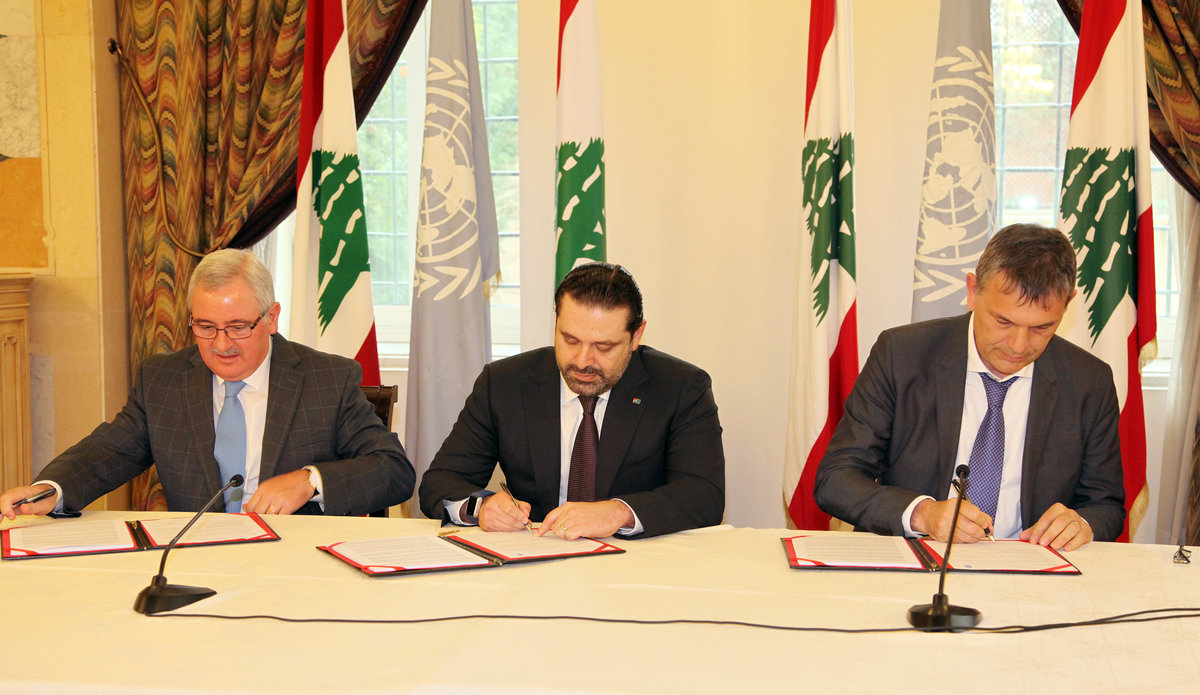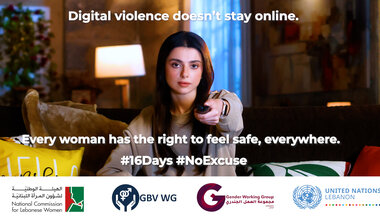Remarks of Deputy Special Coordinator Lazzarini At the official Launch of Lebanon's Ministry's of Women's Affairs at the Grand Serail
UN Deputy Special Coordinator for Lebanon, Resident and Humanitarian Coordinator Philippe Lazzarini
Remarks at the Launch of the Ministry of State for Women’s Affairs
I am very pleased to be here with you today. The establishment of a ministerial portfolio to address women affairs is a timely decision taken by Prime Minister Hariri and his cabinet and constitutes an important development.
It comes at a time when Lebanon’s women still face discrimination and inequalities and so unfortunately still do not enjoy full and unconditional parity. While globally the gender gap in fields such as health and education has almost been closed, Lebanon still has to address a range of challenges related to women’s social, economic and political participation.
Despite being ahead in so many areas such as higher education, with more than 55% of female graduates, and its privileged situation compared to many Arab counterparts, it still lags behind when it comes to gender equality. This is a Lebanese Paradox. Allow me to provide some key examples:
Lebanese women are not entitled to the same personal status and marriage rights as Lebanese men. Women’ rights are much more restrictive in terms of divorce, child custody, and inheritance, which are subject to decisions by the religious courts. Equally important, and despite the Lebanese Constitution and International commitments, Lebanese women are still unable to pass over their nationalities to their children and foreign spouses, while men enjoy both rights. This legislative gap not only affects the concerned women, but impacts the entire household. Can you imagine that a boy born in Lebanon with a Lebanese mother having been brought up in the country, cannot attend public school, benefit from free healthcare, join the national soccer team, and later access the job market without a permit, just because of the law?
It is also not acceptable nowadays to witness gender based violence. Every year there is at least 15 known cases of women dying. It was not until 2014 that a law was passed by Parliament to protect victims of violence, and we should join efforts to follow the line of similar laws and look into enforcement mechanisms.
In the economy, Lebanese women represent only a quarter of the country’s labor force. Less than 20% of companies are owned by women, and female presence in company boards unless family owned (or social enterprises), is almost null. Female entrepreneurship is still relatively low. Most of women-owned businesses in the country operate in the informal sector, and therefore it is less common for women to access financing from banks.
The same applies to political participation, despite the fact that Lebanese women were granted the right to vote in 1952, 20 years before my own country (Switzerland). Lebanon has one of the lowest shares of women in parliament in the world, with only 3.1%, compared to an average of 15% in Arab Parliaments. It is frankly striking that such a wealth of competent and educated women is not yet able to significantly influence public life.
Research has shown that gender equality is a stronger predictor of a state’s peacefulness than its level of democracy or gross domestic product.
Where women are more empowered, the state is less likely to experience conflict. By investing in its peace and security agenda, Lebanon should make social, economic, and political equality a core priority.
We are now at a cornerstone of change here in Lebanon. The new government has made its key priority to restore trust with citizens. The ministerial statement focused on the promotion of women role in public life and in political participation. It also focuses on refining laws to eliminate all forms of discrimination. To succeed in this endeavor, ensuring the adequate inclusion, protection and representation of women will be key.
For all these reasons, the United Nations offers its technical support to the Minister of State for Women Affairs (OMSWA). The Project Document the United Nations Development Programme (UNDP) is signing today with the Lebanese government represents an opportunity and an entry point for the government to work closely with UN agencies to address technical and capacity gaps.
I am all the more happy to be present here today, as it gives me the opportunity to make a call for action. A call for us to work together with the Government to provide the space for Lebanese women to run for elections, by adopting as a temporary measure a women quota. There is no reason why there should not be a quota for women, who are the largest under-represented group. Together, we should push for legal reforms to also ensure their active engagement in all sectors of the economy and society. We should aim at protecting women from violence. We should ensure proper access to health and education for all girls and women. It is through the establishment of partnerships, and making use of all talents and capacities that we can restore trust and create lasting change".
 UN
UN





